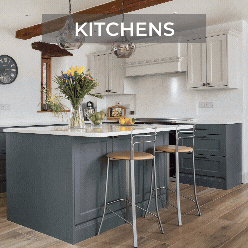In case you missed it see what’s in this section
Let's Talk
Your Total Guide To business
Investing in Your Future without Property: Finding Safe As Houses Investments
Property is often seen as a solid investment. The phrase, “as safe as houses”, is a reference to the investment potential of property
Property is often seen as a solid investment. The phrase, “as safe as houses”, is a reference to the investment potential of property. Like all common sayings, the origins aren’t clear-cut. However, phrases.org.uk notes that it comes from Victorian times and has ties with the saying, “as safe as the Bank of England”. The point here isn’t to discuss the derivation of English phrases, but to explain that property has been seen as a safe investment for over 200 years.
The Evolution of Investing

Source: Pixabay
Our properties page is filled with information about the local housing scene. From rental rates and commercial premises to buying tips, you can get an overview of the property sector in Bristol. What you can also get from these articles, if you’re so inclined, is investment opportunities. Putting money into bricks and mortar has, as we’ve said, been considered a wise move for a long time. We’re not here to dispute that. However, is it the wisest move you can make?
With property prices on the rise and concerns around wage stagnation, investing in property isn't always viable as a first step. The question has to be asked if it is truly accessible to everyday savers. Looking elsewhere, the financial world has evolved significantly over the last two decades thanks to modern technology. Putting money into the stock market is easier and more affordable than it’s ever been. We can say this because of the ways you can access financial markets online. For example, the Freetrade stocks and shares ISA costs £3 a month and, for that fee, account holders can buy US fractional shares within an ISA compliant product. A fractional share gives the investor exposure to a major company without the hefty price tag of being the one unit of the stock.
Tech Lowers the Barriers to Entry
Take, for instance, a single share in Amazon. The cost for one Amazon share in February 2022 was $2,900 (£1,480). Before investment apps offering fractional shares, you would have to pay the full $2,900 to have a financial stake in Amazon. However, through a stocks and shares ISA, an investor can pay a small percentage of that price. In simple terms, you’re buying a fraction of a single share. This benefit runs in tandem with the inherent properties of an ISA product, namely that any profits gleaned from an investment are sheltered from capital gains tax due to the ISA wrapper. That is, of course, assuming you make a profit.
Put another way, if the price of a share increases, you won’t have to pay tax on the profit you make. Investments made outside of an ISA aren’t afforded the same tax break. Therefore, what you get with modern investment platforms is an ecosystem where retail investors can buy shares at prices they can afford in a tax-efficient way. This makes the financial markets more accessible to the average person, which creates a dilemma: should you invest in property or the stock market?
Shares vs. Property

Source: Pixabay
The best answer is that you should diversify if you have enough spare capital. However, if you only have a limited amount of money, buying shares is the more affordable option. Indeed, you don’t need a five-figure deposit or commit to a 30-year mortgage when you buy shares. Owning and renting out a property also comes with ongoing costs, such as maintenance fees. Also, the profits aren’t sheltered from tax in the same way ISA investments are. The counterargument here is that properties provide stable returns over a long time.
Arguably, investors could also consider a Real Estate Investment Trust (REIT), which are companies that invest in property or aspects of it, whether it's retail, rent or infrastructure. Still, this is another layer to consider when considering returns over a period of time.
Data from Seven Capital shows that the average rental yield for houses in the UK is 3.65% but rates up to 6%-10% are possible. In contrast, the S&P 500 has an average return of 10.5%. Of course, location will affect your income. In Bristol, the average rent, according to Home, is £1,690. However, if you find the right property in the right place, it can offer similar returns to the S&P 500. Buying into the S&P 500 is more accessible. So, while properties are a solid investment, the evolution of financial technology has made shares more open. That’s something worth considering if you’re thinking about investing.
Weather in Bristol
Listings

















